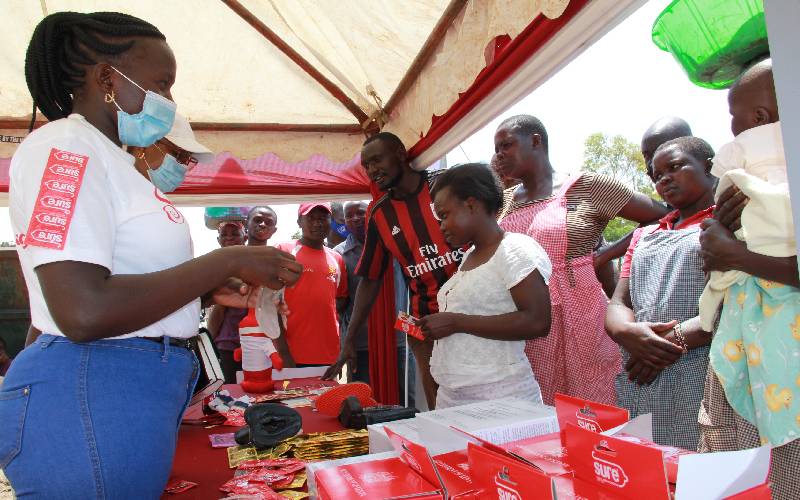×
The Standard e-Paper
Join Thousands Daily

Residents of Homa Bay County pick condoms at Homa Bay Pier beach during the International Condoms Day. [James Omoro, Standard]
Over 100,000 condoms have been distributed to Homa Bay County residents to prevent new HIV infections during Valentine’s Day.